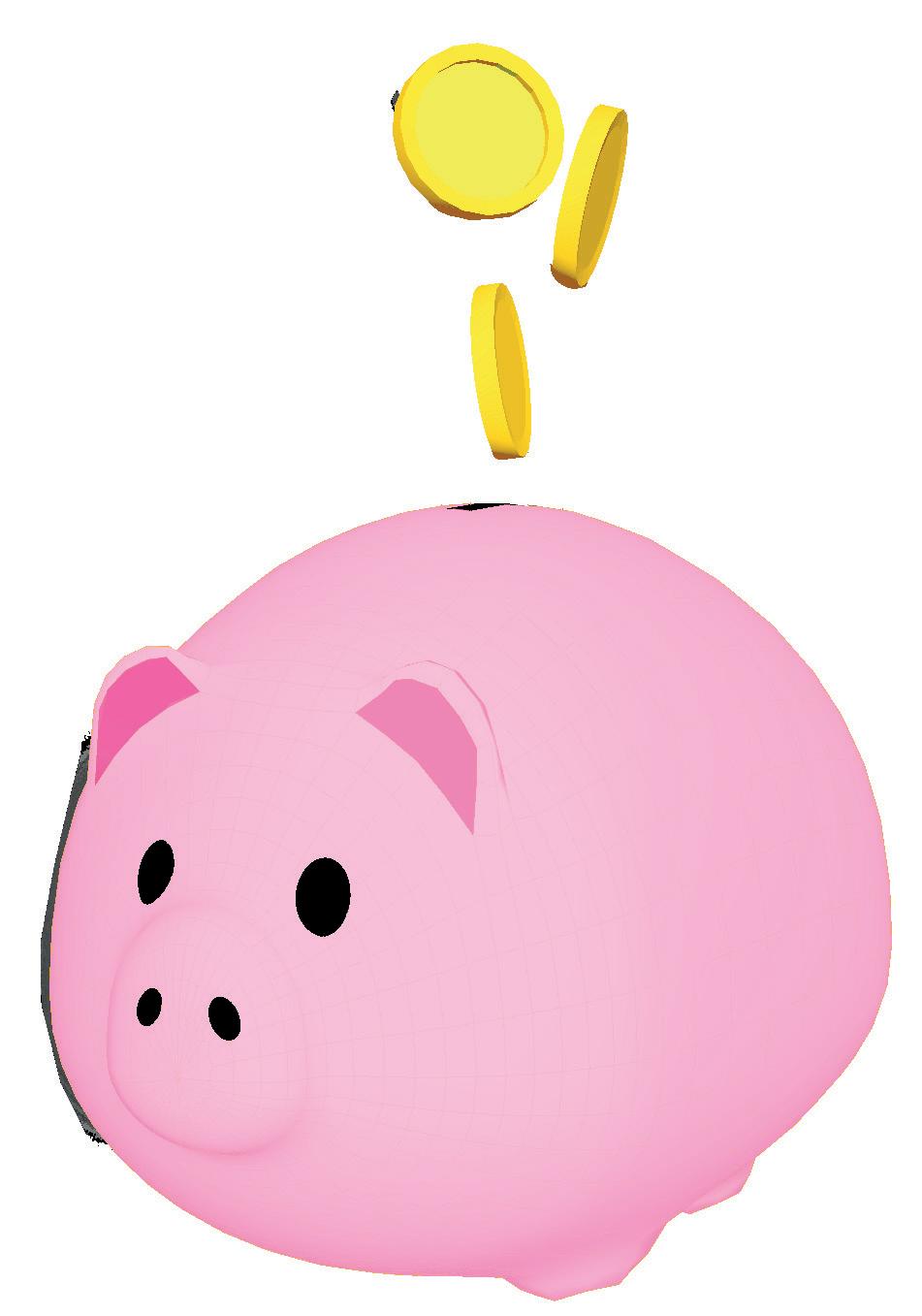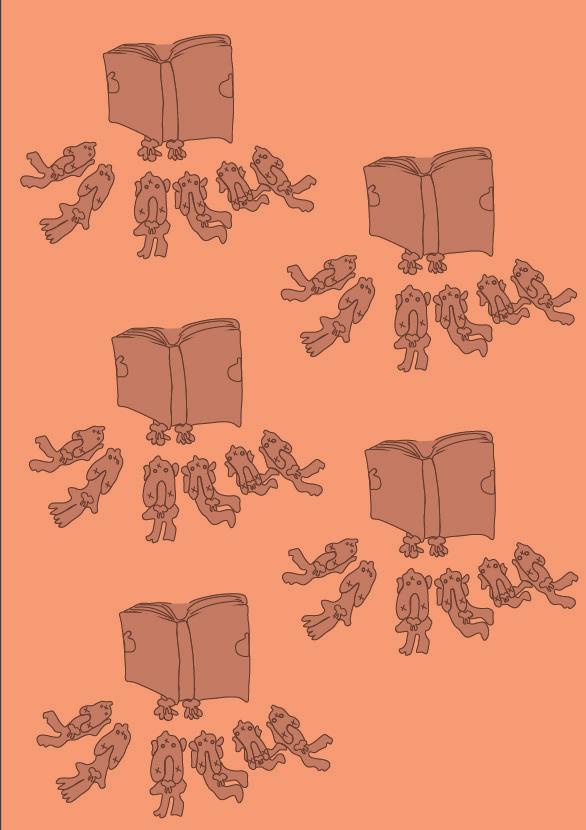
6 minute read
So UNI’S OvER ANd YoU’RE BROkE...
from Pastel
By Caitlin Holroyd
Reminiscing on the start of first year and the large sum of money that landed into your account seems like a lifetime ago, and it’s hard to pinpoint exactly how the student loan diminished so quickly. I can assure you that although this feeling may be daunting and as the end of final year approaches, you begin to regret all the Friday pints and latenight takeaways, there are a multitude of ways to quickly build your bank account back up. There is a pressure to stumble across the job of your dreams immediately after leaving university, and unfortunately this only happens to a very small percentage of us. The reality is that returning to hospitality and retail is completely normal and entirely okay, allowing time to earn back a bit of cash whilst considering the next step. It may seem disheartening after acquiring so many new skills from your course, however sitting back and waiting for the dream job to miraculously appear will only waste your time and set you back to square one.
Advertisement
Considering the recent soar in online marketplaces such as Vinted and Depop, selling your unused stuff has recently become one of the most effective ways to rapidly earn some money. If you are approaching the end of university, this can be particularly helpful, providing an opportunity to sell any home décor or utensils that you may no longer require if moving back home. It can be difficult to part with possessions, although payment for taking a trip to the post office is much more gratifying. Comparable to the simplicity of online selling, offering ‘cash in hand’ services can also prove a quick and easy way to earn some money. Whether this is offering childcare for the neighbours or advertising a dog-walking regime, locals almost always require these forms of aid.
Freelancing and promoting your skills are other excellent ways to kickstart your career, focusing
Design Caitlin Holroyd
Illustration Rida Khalid
in on your expertise, whilst earning a bit of money and ultimately, doing what you enjoy the most. This doesn’t have to be specific to the field of which you studied in, but instead could extend to experimenting in other sectors, such as a fine art student writing short stories or an English student dabbling in film. Creating a portfolio and showcasing your talent is the first step, making this apparent on social medias to gain some publicity. You can start at low prices and although it may be difficult to see the profitability, once the ball gets rolling and you gain more customers, there is higher potential for a price increase. There will be a multitude of alumni students that have gained experience establishing their own businesses through self-employment and ultimately, they may be the most knowledgeable on the best ways to go about this.
Another tip to keep your skills fresh, whilst acquiring some money, is to offer tutoring services to cohorts under you, helping them with their assessments and supplying them with advice gained from your own experience, particularly as a recent graduate. In exchange for this, asking for a small fee would be more than reasonable, particularly as the student will now have made a connection for when they graduate, supplying the opportunity for business partnerships or just general aid. A great way to advertise this would be in the major student areas, such as pinning up posters in the libraries, student unions and most importantly, adding a post to the MSG (Manchester Student Group) Facebook page. The major life lesson here is that the job hunt takes time, and there so many people in a similar situation that will be feeling equally as nervous and ambiguous. Take some time to reflect and keep calm, because money can always be recouped!
thE rEAlity of thE
todAy: rECurring fiASCoS or JuiCy EvEntS?
By Stella Konstantopoulou
The world of publishing dates back to the 19th century, and its robust strength and innovation continues to grow still. With many successes, long New York Bestseller lists, and of course with the beloved (warning for publishers who are still traumatised by its immense success) Amazon being the frontrunner, publishing continues to amaze with its mass provision of books. As with everything in life though, there is another side of the coin. And, what if I told you that this side is far from golden and shiny? What truly goes on behind the scenes? And could the successful ‘Big Five’ be spared some mercy upon folly decisions, as they only strive to do what is in the best interest of them and their readers? Well, I encourage you to make your own decision, as I present you with two example cases from the past year:
Case number one
A banana-strawberry smoothie which does equal justice to both fruits - the flavour that banana leaves in one’s taste buds is not at all toned down by the flavour of strawberry, and leaves a smooth texture with just the right amount of milk - is a rather good mixing idea. Unfortunately, the same can’t be said with the intended conglomeration of Penguin Random House and Simon & Schuster that we originally wanted. Penguin Random House, as themselves stated, strongly believed that a merge, such as the above, would result in pro-competition that would greatly benefit both consumers and any antagonism in the publishing sector. Taking that into account, it is an understatement to say that one of the parties was not happy, when, after a three-week trial during August 2022, the scale tilted in favour of Simon & Schuster, with rival publishers like Hachette and HarperCollins voting against the conglomeration. There were some focal arguments that went against the decision. For example, the substantial harm to competition in the U.S. market, regarding publishing rights for potential top-selling books (as PRH is the largest company in book publishing, whereas S&S is the fourth largest), alongside the reduction of author ’s advances and royalties that would follow up after the mixture.
Besides, let’s not forget that we live in a time during which inflation is viewed as normal. To quote the Justice Department, ‘One entity’s control of almost half of the nation’s anticipated top-selling books threatens competition in multiple ways. Authors’ advances would fall – advances that they use to pay their bills and that reflect compensation for their work.’ So, in the publishing sector and in its attempt for mixing things up, the blender has been taken from the plug socket and smashed into a million pieces. As of my personal opinion, let’s just say that I believe we should leave bananas and strawberries just be.
Case number two
The storm that came along in 2019, the COVID-19 pandemic, has been replaced by an issue of a different nature, otherwise named ‘the cost of living crisis’. The inflation that has taken a toll on each and every individual’s life globally, has undoubtedly affected business as well, including the publishing industry. Due to inflation, costs like manufacturing, freight and distribution drastically increased at the same time HarperCollins was experiencing a decline in sales. According to Publishers Weekly, their decline in earnings was 52%, while sales dropped 14%, amounting to $531 million. Now, the part which concerns us is the evident difficulties and changes that 2023 has inflicted upon some of the workforce.

The year of 2023 began in the worst way possible for North Americans working in the HC division, as they began implementing a cutting program to its workforce, of 5% by the end of the year. This may not come as a surprise to students and graduates who, among rent strikes, teaching strikes, deal with the anxiety of navigating adulthood, also face the worry of cuts offs and being fired. Let’s not forget, however, that ‘you can’t have the rainbow without a little rain’ and that ‘there is light at the end of the tunnel’.
In regard to the HarperCollins strikes, which had a duration of three months, the rainbow and light come in the form of an established contract, ending on 31st of December 2025. This facilitates unspecified increases to minimum wage salaries which originally started at $45,000, and promises a one-off $1,500 lump sum bonus to employees from the union’s bargaining unit (once the contract is ratified). As the deal was facilitated by commissioner Todd Austin of the Federal Mediation and Conciliation Service, it was then met with celebratory well wishes from New York City comptroller Brad Lander, alongside several authors and literary agents: ‘’Huge congrats to @hcpunion after more than 9 weeks on the picket line! Really admire your guts & solidarity,” wrote Lander. Literary agent Molly O’ Neill added, “Bravo! Now you all deserve a nap!!” Despite our satisfaction regarding the success of the strikes, we refuse to ‘’take a nap’’.










